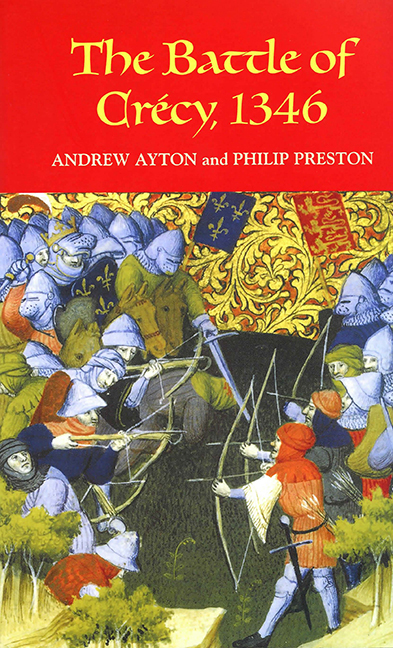Book contents
- Frontmatter
- Contents
- List of Illustrations
- Preface and Acknowledgements
- Abbreviations
- Dedication
- Introduction
- The Campaign
- The Battle
- The English
- The French
- 6 The Nobility of Normandy and the English Campaign of 1346
- 7 Vassals, Allies and Mercenaries: The French Army before and after 1346
- 8 The Battle of Crécy: A Hard Blow for the Monarchy of France
- Sources and Problems of Interpretation
- Index
- Miscellaneous Endmatter
7 - Vassals, Allies and Mercenaries: The French Army before and after 1346
from The French
Published online by Cambridge University Press: 25 October 2017
- Frontmatter
- Contents
- List of Illustrations
- Preface and Acknowledgements
- Abbreviations
- Dedication
- Introduction
- The Campaign
- The Battle
- The English
- The French
- 6 The Nobility of Normandy and the English Campaign of 1346
- 7 Vassals, Allies and Mercenaries: The French Army before and after 1346
- 8 The Battle of Crécy: A Hard Blow for the Monarchy of France
- Sources and Problems of Interpretation
- Index
- Miscellaneous Endmatter
Summary
The celebration of our great defeats is one of the oldest traditions in French historiography. And the battle of Crécy – as well as those of Poitiers and Agincourt – is one of the disasters that is deeply etched on our national memory. For a long time, French scholars have tried to explain this sad event. All too often they have contrasted the high quality of English military organisation with the disorder of a French ‘feudal army’, and in explaining the outcome of the battle have given precedence to political and social considerations over tactical and purely military ones. Typical of this is the following description from Lavisse and Rambaud's classic work, Histoire générale:
[At the time of Crécy] the military burden of war was entirely supported by an arrogant and romantic nobility, scorning the ‘piétaille’ – that is to say infantry – ignoring tactics, fighting just like in tournaments, unable to use scouts or to stop when marching. This nobility was ready for defeat.
While being suffused with historical hindsight, this sentence also seems to overlook the fact that the English nobility of the fourteenth century was no less arrogant and romantic than its French counterpart. So, what kind of army did the French have at the battle of Crécy, and how was it organised? And what changes in French military structures and mentality were brought about by the battle? Let us look first at how the French troops were recruited.
Philip VI's army has frequently been described as being ‘feudal’, meaning that the king's vassals were the nucleus of his army. The military feudal system was indeed one of the bases of French military organisation, because, by virtue of their feudal obligations, vassals were obliged to serve, customarily for forty days, in the royal army at their own cost. But by the end of the thirteenth century, the king of France often paid for the ‘service d'ost’, that is to say ‘feudal military service’, and from the beginning of the fourteenth century there existed a special financial administration to collect money and use it for the prosecution of the king's war. This service involved the nobility of the whole kingdom. When the king of France thought it necessary, he convoked or summoned all his ‘vassaux’ and ‘arrière vassaux’ (vassals of his vassals).
- Type
- Chapter
- Information
- The Battle of Crécy, 1346 , pp. 265 - 272Publisher: Boydell & BrewerPrint publication year: 2005

